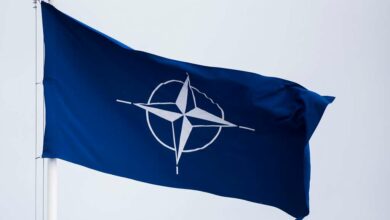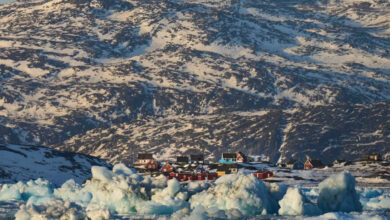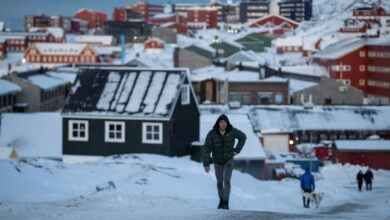Tripoli – NATO pounded Libya's capital on Tuesday, only hours after South Africa's president left following talks that produced only a commitment to a peace plan already rejected by the military alliance and rebels.
South Africa's Jacob Zuma, representing the African Union, held talks on Monday with Muammar Qadhafi as NATO insisted that the Libyan leader's "reign of terror" is nearing an end.
And a day after eight top officers of Qadhafi's army announced their defection in Rome, Italian Foreign Minister Franco Frattini is expected to open a new consulate in the rebels' Benghazi bastion.
Zuma said before he left the Libyan capital that Qadhafi was "ready" to implement the African Union plan to end the conflict between regime forces and rebels fighting to oust the strongman.
But the African mediator did not publicly discuss the key obstacle: Qadhafi's departure. The rebels have reiterated they would accept no settlement that keeps Qadhafi in power.
"He is ready to implement the roadmap of the AU," said Zuma, adding it would begin with a ceasefire that must include a halt of NATO-led bombing.
Qadhafi insisted "all Libyans be given a chance to talk among themselves" to determine the country's future, Zuma said.
Libyan state television reported fresh NATO air raids overnight against targets in Tripoli, the suburb of Tajura and Jafra, a city south of the capital.
The report cited a military source as saying "NATO colonialist crusaders" had targeted military and civilian sites in Tripoli and Tajura, causing deaths and damage.
From the centre of Tripoli, which NATO has been attacking for several weeks now, an AFP correspondent reported warplanes flying overhead and distant explosions around midnight local time (2200 GMT).
The state-run Jamahiriya TV also said there had been air raids on civilian and military sites in the city of Jafra, about 600kms (370 miles) from Tripoli.
Zuma said raids by NATO, which is enforcing a no-fly zone over Libya and protecting civilians from a regime crackdown under a UN mandate, were undermining African mediation efforts.
"Even going there had to be delayed because of bombing," he said in apparent reference to an initial AU mission to Libya.
"We only went there long after the time that we had taken a decision, and even going there, you have to ask permission from the NATO to get to Libya."
In Rome, meanwhile, five generals, two colonels and a major announced they had defected from Qadhafi's forces – and also said the regime's army was now at 20-percent capacity.
Abdel Rahman Shalgham, a former foreign minister who was Tripoli's UN representative before switching sides, told a press conference: "These officers are among 120 who left Qadhafi and Libya over the last few days."
"We hope more will join us and the Libyan people, and leave the side of this despot and criminal," he said.
At a meeting of NATO's parliamentary assembly in Bulgaria, NATO Secretary General Anders Fogh Rasmussen insisted: "Qadhafi's reign of terror is coming to an end.
"He is increasingly isolated at home and abroad. Even those closest to him are departing, defecting or deserting…It is time for Qadhafi to go as well," Rasmussen said.
In Rome, Libyan General Salah Giuma Yahmed said the ongoing defections meant Qadhafi's forces could no longer prop up the regime.
"NATO forces are paralyzing Qadhafi's troops, they are now running at about 20 percent of their military capacity," he told reporters.
The Libyan regime also got support from two French lawyers who planned to initiate legal proceedings against France's President Nicolas Sarkozy for crimes against humanity over the Libya campaign.
Libyan justice ministry official Ibrahim Boukhzam told reporters in Tripoli that Jacques Verges and Roland Dumas had offered to represent families he said were victims of the NATO bombs.
Mustafa Abdul Jalil, who heads the rebels' provisional government, has welcomed a call by G8 world powers for Kadhafi to stand down, saying it was the position reflective of the "will of the international community as well as the demands and aspirations of the Libyan people."
The rebel leaders, called the National Transitional Council, announced Monday that they had renamed their armed forces the National Liberation Army.
Meanwhile, the rebellion also launched its first television channel, Al-Hurra, broadcasting for four hours on Monday night from the eastern rebel stronghold of Benghazi.
"This is a historic moment, we had plenty of obstacles," Al-Hurra chief Zuheir Al-Barasi told AFP, adding the station is funded by Libyan and foreign businessmen and run by volunteers.



